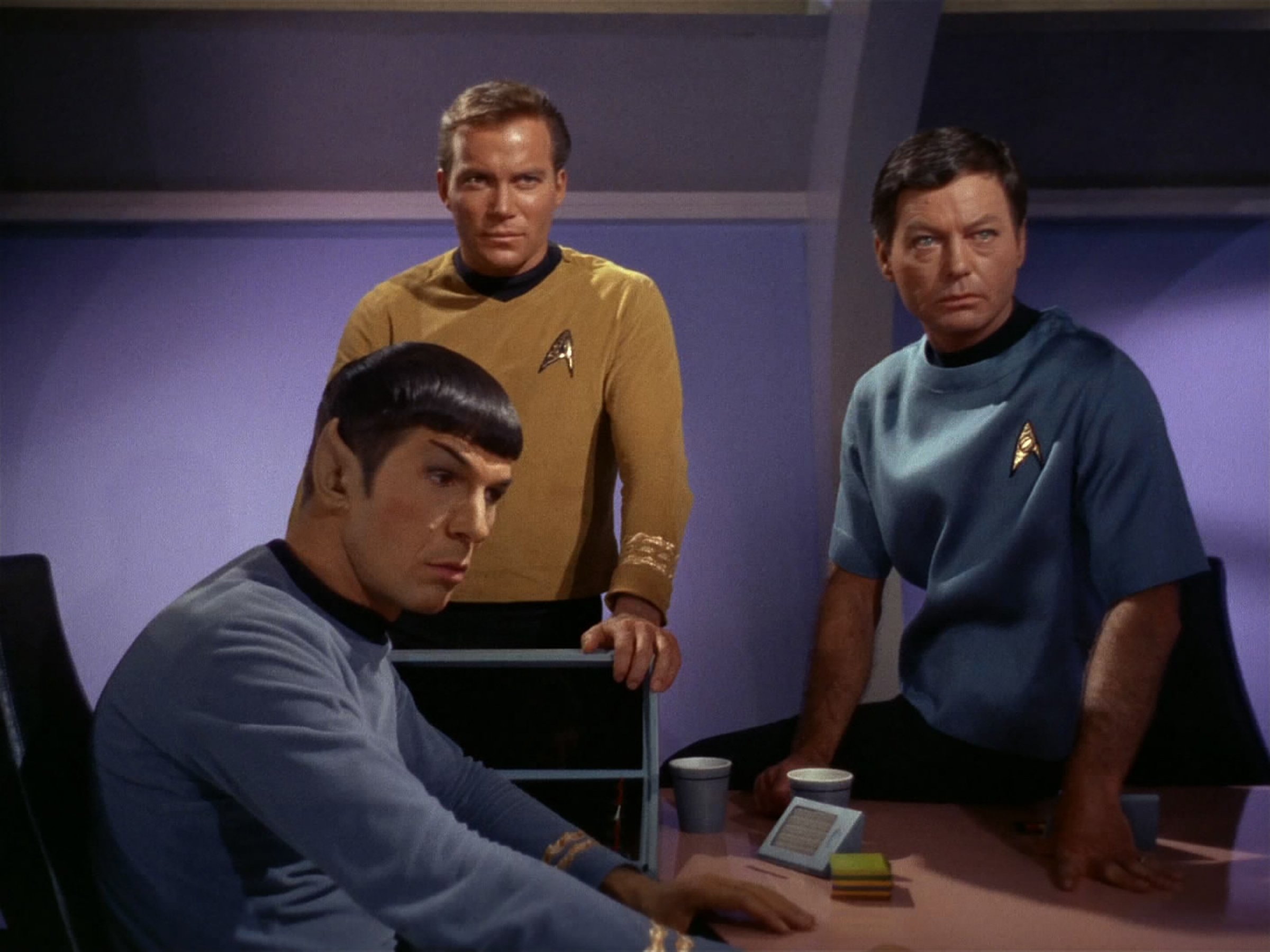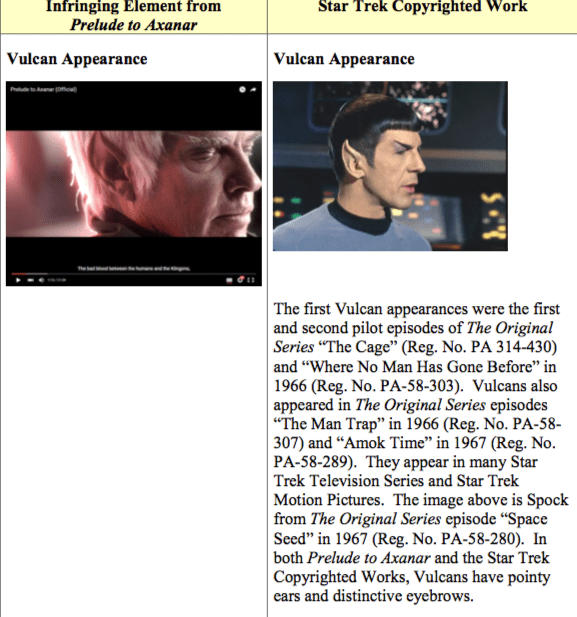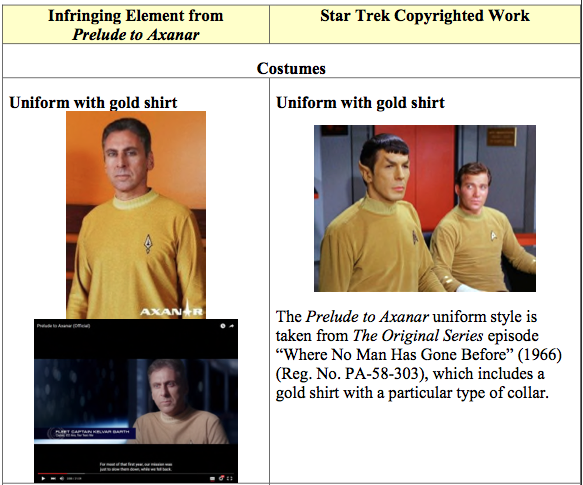
As promised, the lawsuit launched by Paramount Pictures and CBS over Axanar, a fan-funded Star Trek film, is boldly going places where no man — or Klingon — has gone before. As the Klingons say, “DabuQlu’DI’ yISuv.”
After the Star Trek rights-holders sued producers, led by Alec Peters, who put out a short film and solicited donations with the aim of making a studio-quality feature set in the year 2245 — before Captain James T. Kirk took command, when the war with the Klingon Empire almost tore the Federation apart — the defendants brought a dismissal motion that faulted Paramount and CBS with not providing enough specificity about which of the “thousands” of copyrights relating to Star Trek episodes and films are being infringed — and how.
Ask and ye shall receive.
On Friday, Paramount and CBS filed an amended complaint that responded in a few ways.
To the argument that because the crowdfunded film hasn’t actually been made yet, the lawsuit is “premature, unripe and would constitute an impermissible prior restraint on speech,” the plaintiffs point to defendant’s Facebook post that mentioned a “locked script.” They also note a press interview that Peters gave on Feb. 1 where he said, “We violate CBS copyright less than any other fan film,” as an admission he indeed is violating copyright.
But the highlights of the new court papers are more specificity about what is alleged to be a copyright infringement.
For example, how about them pointy ears of the Vulcans?

Or how about those gold shirts that Federation officers wear?

There’s also word that the defendants are infringing characters like Starfleet captain Richard Robau, the triangular medals worn by Starfleet officers, the Starship Enterprise, the appearance of Klingons, the name of the Klingon home planet, the element of using a “Stardate” to tell time, the logo of the United Federation of Planets, the element of phasers, the element of beaming up via transporters, the element of warp drive and so forth. Read the amended lawsuit in full.
But here’s our particular favorite:

Yes, that’s right, the language of Klingon.
Why this strikes a particular chord is that last year, the copyrightable nature of Klingon actually became a subject in a closely watched dispute between Oracle and Google. In a nutshell, Oracle looks to protect its Java API code from Google’s attempt to use some of it for its Android software. A federal appeals court ruled in May 2014 that one could indeed copyright an API, leading to a collective freak-out by many in the tech industry. Google then attempted to get the U.S. Supreme Court interested, and Charles Duan of both Slate and the Milky Way Galaxy found a metaphor in the language of Klingon.
Duan wrote, “With the rumors about the third Star Trek film starting to fly, it’s high time to talk about how the Supreme Court is about to rule on whether it is illegal to speak Klingon.”In his view, copyrighting an API is akin to copyrighting a language, and what Oracle was doing was an attempt to stop Google from speaking a language. Unfortunately for Google, the Supreme Court didn’t agree to hear the case. Over the years, there have arisen other copyright concerns pertaining to the Klingon language without any firm evidence that Paramount indeed would ever claim rights to stop others from speaking it.Until now.
Maybe API code wasn’t the right starship to explore the copyrighting of Klingon. Perhaps instead it’s a real-life legal dispute involving Klingon that will inform rights surrounding code. The influence of Star Trek on technology has long been celebrated. Now comes a Star Trek legal dispute that is totally sci non fi.
More Must-Reads From TIME
- The 100 Most Influential People of 2024
- The Revolution of Yulia Navalnaya
- 6 Compliments That Land Every Time
- What's the Deal With the Bitcoin Halving?
- If You're Dating Right Now , You're Brave: Column
- The AI That Could Heal a Divided Internet
- Fallout Is a Brilliant Model for the Future of Video Game Adaptations
- Want Weekly Recs on What to Watch, Read, and More? Sign Up for Worth Your Time
Contact us at letters@time.com